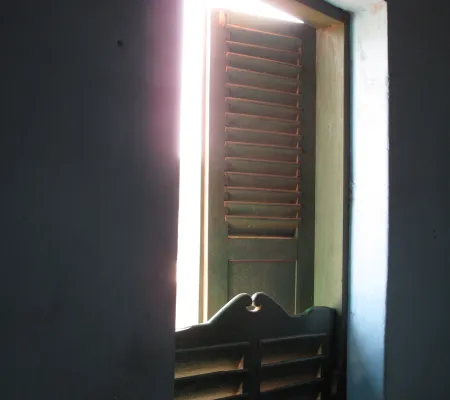Agudá is a term used in West Africa to designate Africans and African descendants who own surnames of Portuguese origin. Slave merchants of Brazilian origin who traded captives from that African region formed part of this group. Another part was constituted by former slaves who returned from Brazil after gaining freedom, a process that took place all through the 19th century and culminated in 1888, when slavery was abolished in Brazil. In order to differentiate themselves socially in that region, they spread, in Africa, American cultural practices that they knew. They also cultivated a particular architecture between the beginning of 19th century and mid 20th century. Its first references are the manor houses and the urban villas constitutive of the culture generated by the sugar economy in Brazil from 16th century. But it is linked to existing cultural connections between the Bight of Benin, in Africa, the Bay of All Saints, in Bahia, South America, and beyond, through the actions of the Portuguese empire in the globalizing world during the first modern era. In this talk, Dr. Roberto Conduru will discuss how this architecture has been represented and widespread through Photography by the French Pierre Verger in the 1950s, the Brazilian Milton Guran in the 2000s (both of whom were anthropologists); and the Beninese artist Leonce Raphael Agbodjélo in the 2010s.
Roberto Conduru is the Distinguished Endowed Professor of Art History at Southern Methodist University, Dallas, Texas. He is the author of Pérolas Negras, Primeiros Fios (Black Pearls, First Threads; EdUERJ, 2013), Arte Afro-Brasileira (Afro-Brazilian Art; C/Arte, 2007) and of monographic studies on artists such as Frida Baranek, Willys de Castro, Antonio Dias, Jorge Guinle, Paulo Pasta, Amador Perez and Eduardo Sued, among others. Curator of Axé Bahia - The Power of Art in an Afro-Brazilian Metropolis (Fowler Museu UCLA, 2017-2018), Negros Indícios (Black Indices; Caixa Cultural, São paulo, 2017), Vontade Construtiva na Coleção Fadel (Constructive Will in the Fadel Collection, Rio Museum of Art, Rio de Janeiro, 2014) Incorporations - Afro-Brazilian Contemporary Art (La Centrale Électrique, Brussels, 2011-2012), among other exhibitions.


